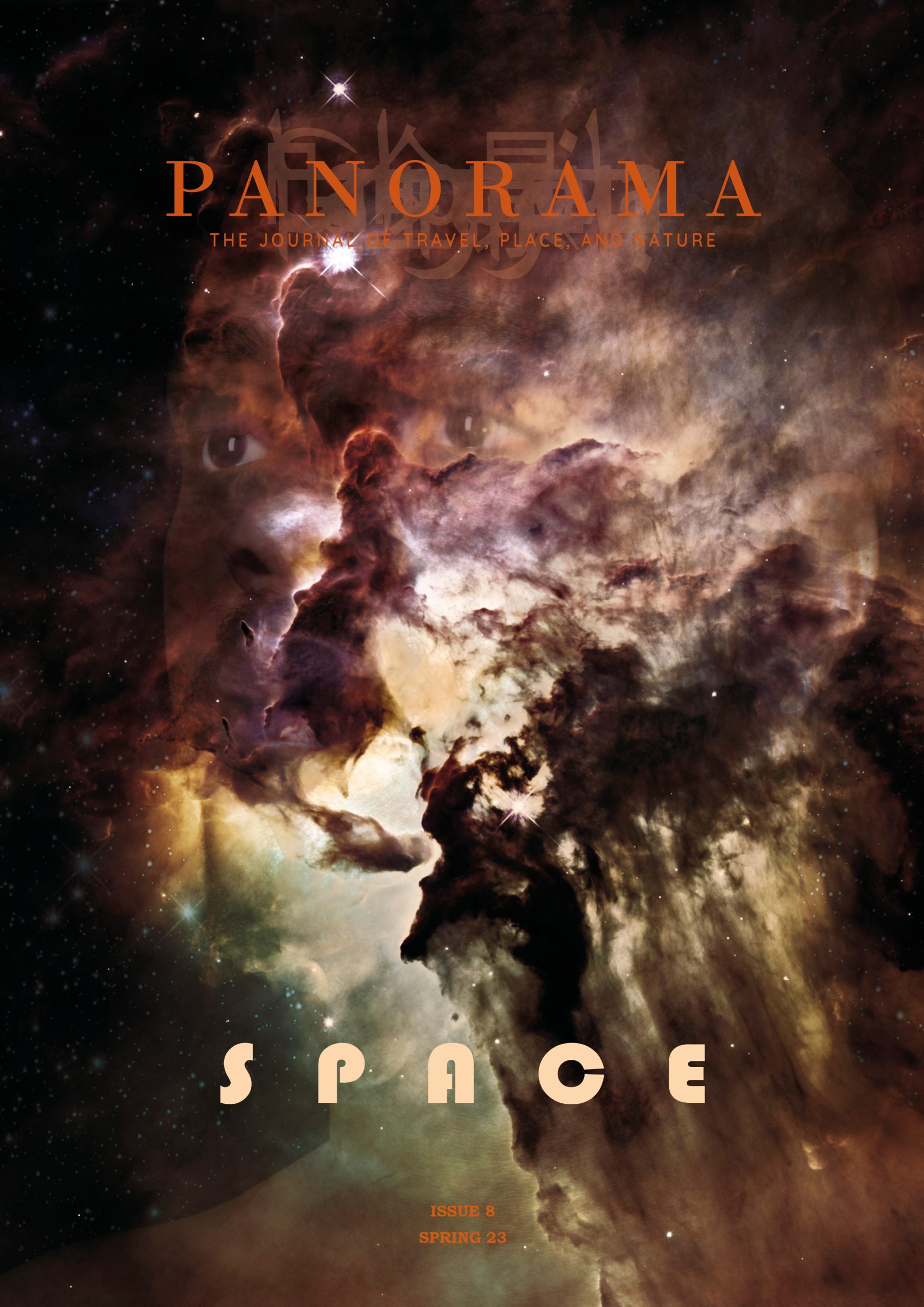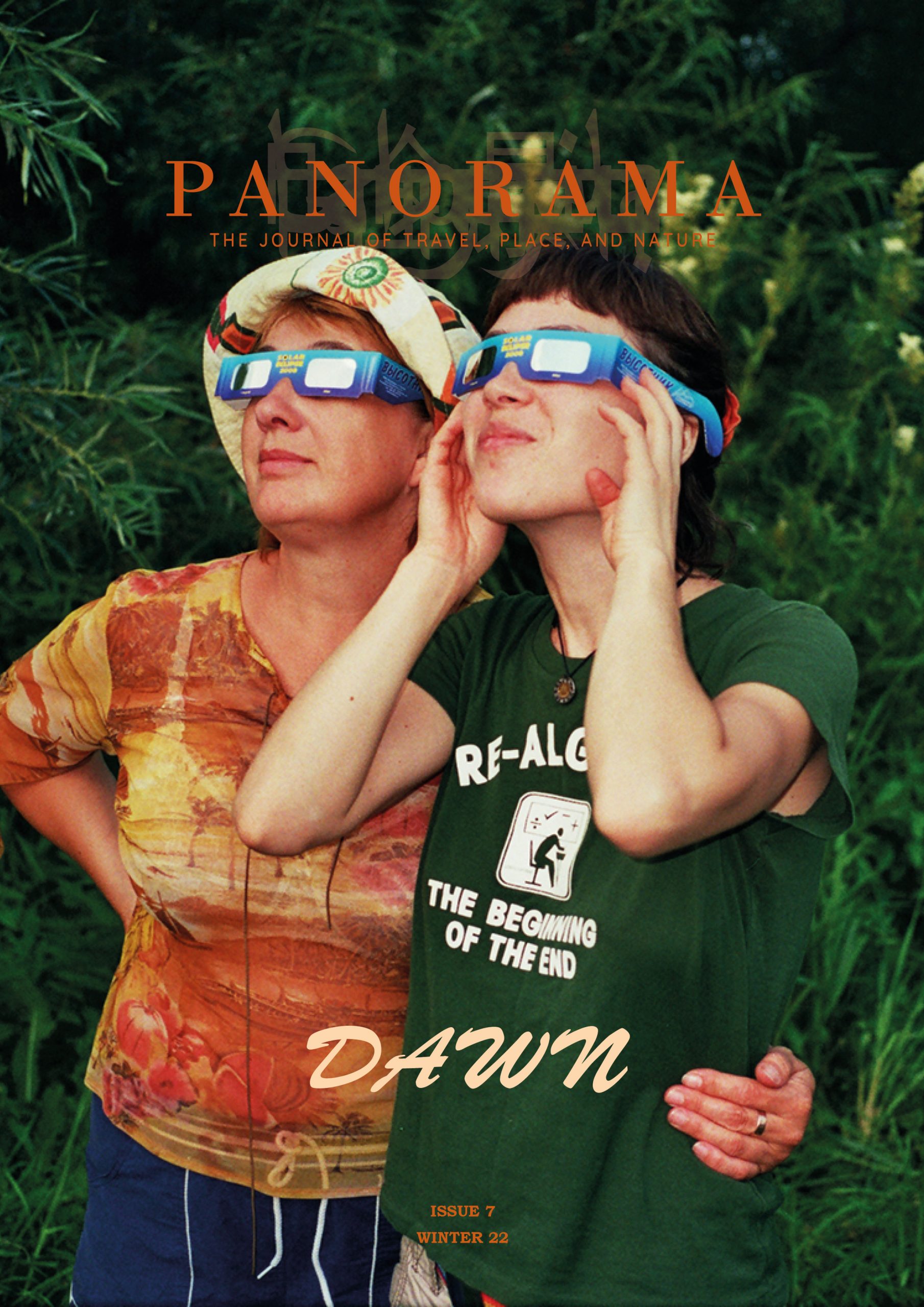The day I learned to travel was the first time I ever was truly lost.
It was 1979 and I was nine years old. Surely, I thought as I sat timidly on the plastic seat, the bus driver wasn’t going to ignore two blonde girls. Every other adult in this city felt it necessary to touch or at least comment on our hair — cries of biondina! echoed in every piazza we crossed. It was one of the few words of Italian that I knew.
The other passengers had all got off the bus, which had stopped on a corner that was apparently the end of the line. Yet there we sat quietly, hair in plaits, backpacks on our laps, waiting for an adult to tell us something, anything. The driver opened the front door and climbed off without a word, intent on his cigarette break.
My sister, Sheila, who was seven, looked at me trustingly, sure I would know what to do. Hadn’t our mother’s last instructions been to hold hands and listen? She knew I always had a ready answer.
Except this time I really didn’t.
In that bygone age, not only did I, of course, lack a mobile phone; there wasn’t even a landline in our apartment. I had no way to call for help. I had been in Italy for about six weeks and I had got on the wrong bus on our way to school and I had failed at the task my mother had set me.
If I knew more about Italy and Italians I would have realised that a few tears would have served me well: nothing creates a crowd of sympathetic adults faster in that child-loving country than a little girl weeping. But I didn’t know, and I wasn’t a crier. In fact, my mother, Sheila, and I were lately of Ridgefield, Connecticut, where children didn’t cry, and crowds of adults didn’t form, shouting, and gesturing with their hands. We had lived in genteel poverty in an old farmhouse on top of a lonely hill with an apple tree in the yard, and swallows nesting under the eaves.
I rode a bus there, too. It picked me up at the bottom of our long driveway and carried me to Scotland Elementary, where in the third grade I memorised the state names and capitals. My friends lived in newly constructed houses with wall-to-wall carpeting; I visited them and we played Old Maid, sipping iced tea their mothers had made from a powdered mix. I marched in the Memorial Day parade at the beginning of summer wearing my Brownie uniform, white gloves on my hands, a beanie on my head.
Like most children, I had an internal map with all the important places on it: home, school, the library, the train station where we sometimes dropped my father so he could go to work without taking the car. I needed nothing more. We rarely travelled, and my biggest navigational challenge was figuring out how to quickly ride my bike past the large and scary dog that patrolled our nearest neighbour’s driveway.
My map had people on it too, in particular my mother, who sat at its centre wearing old coveralls and listening to Simon and Garfunkel while she painted in a studio at the back of our house. She read aloud to Sheila and me: The Lord of the Rings and Edna St. Vincent Millay’s poems. She made oatmeal for breakfast with raisins and walnuts. Her elegant hands were always cold, and she loved to warm them on my back. As long as I could locate her, I knew where I was.
It had all been benign — until it wasn’t. My father, newly and madly in love, departed abruptly in the heart of a cold New England winter, and from February until June my mother dwindled in the half light of our living room. Even though she was right in front of me, I felt as though I couldn’t find her.
Until one day (or so it seemed to me) she raised her head and shook it, and set her sights on art school in Italy. Then in a flurry of activity we were off to New York for passport photos and a shopping trip to buy sleeping bags. We would be leaving at the end of summer: a new school, a new life, a new language. Is it strange that now across the years I can’t even remember how she told us we were going? I’m pretty sure she tossed the words “adventure of a lifetime” around, but I may be making that up.
But an adventure it was. Suddenly, a girl who had never so much as looked at a map of Italy, or stepped inside an aeroplane, was set down mere blocks from Florence’s famous red-roofed, jade-and-white Duomo, a confection whose colour and shape were in sharp contrast to the white clapboard churches I had previously known.
We arrived without anywhere to live. For the first month we stayed in a small set of rooms tucked into a corner of the art school. She cooked on a hot plate in a tiny windowless kitchen, and the three of us slept in an adjoining alcove. The school was located on the Via de Ginori, steps from the Piazza San Lorenzo, and minutes from the Medici palaces and Michelangelo’s David, as well as the large food market, a much more rollicking, disorganised series of open-air stalls than the clean and decorous building which now stands in its place.
None of us knew what to do with ourselves, or where we were going, ever, when we first arrived. We spent hot days wandering. I had suddenly emerged into a world which engaged every single one of my senses. Particularly surprising was how much it smelled. Not just the scent of coffee from the bars on every corner, but the odour of blood and sawdust from the open door of the butcher shop, whiffs of acrid diesel smoke as impossibly small cars sped down impossibly narrow streets, the dusky smell of centuries of incense in dim churches, the aroma of garlic frying and drifting out open windows. The perfumed air was a constant reminder that I was in a new place.
And of course, when we came into the art school we inhaled odours of turpentine and gesso. Someone would be smoking and lounging on the ratty sofas, always. The Rolling Stones played on cassette. My mother, thin and distracted, sat at her easel and painted her pain on huge canvases while everyone around her kept a respectful distance.
The world was strange and tilted, but still felt small: tiny bedroom, art school, the warren of surrounding streets opening onto piazzas that quickly became familiar. Sheila and I danced and sang and pretended we were princesses, and went to the corner bar for ice cream. When school started, my mother took us on a short bus ride across the river where I would smile, always at the Ponte Vecchio, which looked to me like a toy bridge with its row of shops precariously stacked. Since she was there, it all felt somewhat safe and contained.
When my mother finally found us an apartment, it wasn’t in this convenient and quickly familiar centre of the city. Florence isn’t big, but the older, iconic area that tourists visit is surrounded by more modern residential neighbourhoods. We now rode two buses to get us from the sleepy Via Fratelli Dandolo, named after two brothers who fought for Italian independence in 1849, to our English-speaking elementary school near the Porta Romana. Every day involved time travel from a neighbourhood of proper 19th-century bourgeois apartment buildings to the ancient city gate.
I can’t recall my mother telling me I would be taking Sheila to school without her. For the first week she asked me to pay close attention to the numbers on the buses and to where we got off, first on one of the side streets near the Duomo, and then near the Boboli Gardens with its boxwoods and Renaissance sculptures. She grilled me on our home address, so much so that I still remember it. But did we talk about what I should do if we got lost? Did I have a phrasebook? Was there a page in my composition notebook inscribed with the school’s phone number, or a note in Italian that explained who I was and where a friendly police offer should take me? I’m pretty sure the answer to all of these questions was no.
But my mother didn’t send me off completely unarmed. I had a paper map. It was large and glossy. I nodded obediently when she showed it to me and, following her instructions, used the key to find our street on the grid. I pretended to know what the map meant, pretended to believe I could use it to get back to her, pretended she would always be there next to me, no matter where I went.
And so, on that first morning, when I pulled Sheila off the bus at the correct stop but then somehow hurried us onto another bus across the street that headed not toward our school but in the opposite direction, it was the map that saved us.
When it became obvious that the driver wasn’t coming back to rescue us, I led Sheila off the bus. I unfolded the map and asked her to hold one side of it while I held the other. I looked at where my mother had drawn a black star on our street. I walked to the end of the block and looked at that street sign. I found the street on the map, folded it so that I could carry and read it at the same time, took my sister’s hand and walked us home. Although it felt like we were an eternity away it was in fact probably a distance of less than a kilometre; I think we made it home in about 20 minutes.
I didn’t start to cry until my mother opened the door. She comforted me for a while, her hands in my hair. She gave me a cookie and let me sniffle. She washed my face. Then she wrote a note for my teacher, slipped it in my bag and opened the door.
I had thought my internal map of the world changed when we arrived in Italy. But the real metamorphosis happened as my mother shooed me and an ever-docile Sheila out of the door and down the marble steps of our apartment building.
We walked to the bus stop in silence. When the bus came, she once again kissed me and told me to get my sister to school safely. So of course I did. And I never got lost doing so again.










